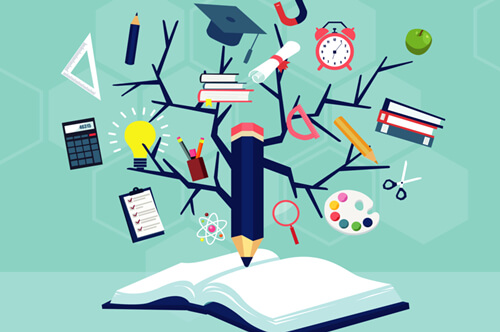
Message from Ms. Audrey Azoulay, Director-General of UNESCO, on the Occasion of the International Day of Education文章源自英文巴士-https://www.en84.com/12870.html
教科文组织总干事奥德蕾·阿祖莱国际教育日致辞文章源自英文巴士-https://www.en84.com/12870.html
文章源自英文巴士-https://www.en84.com/12870.html
24 January 2022文章源自英文巴士-https://www.en84.com/12870.html
2022年1月24日文章源自英文巴士-https://www.en84.com/12870.html
文章源自英文巴士-https://www.en84.com/12870.html
As we mark the fourth International Day of Education, our world stands at a turning point.文章源自英文巴士-https://www.en84.com/12870.html
文章源自英文巴士-https://www.en84.com/12870.html
在我们庆祝第四个国际教育日之时,世界正处于一个转折点。文章源自英文巴士-https://www.en84.com/12870.html
文章源自英文巴士-https://www.en84.com/12870.html
Glaring inequalities, a damaged planet, growing polarization and the devastating impact of the pandemic present us with a generational choice: continue on an unsustainable path or radically change course.
触目惊心的不平等、千疮百孔的地球、不断加剧的两极化和大流行病带来的严重后果都让我们必须作出一个世代性选择:继续走不可持续的道路还是彻底改弦易辙。
Education can help us solve all of these issues – but it faces serious challenges.
教育可以帮助我们解决上述所有问题——但教育本身也面临严峻挑战。
We have yet to deliver on our commitment to ensure the right to quality education for all. COVID-19 disruptions have only exacerbated an educational crisis that, even before the pandemic, excluded 268 million children from school, especially girls. As a result of this exclusion, millions of children, youth and adults are exposed to poverty, violence and exploitation.
确保全民享有优质教育权的承诺尚未兑现。COVID-19大流行之前就有2.68亿儿童,特别是女童,被排除在校园之外,这一教育危机因疫情而加剧。这种排斥致使数百万儿童、青年和成年人遭遇贫困、暴力和剥削。
In these exceptional times, business as usual is no longer an option. If we are to transform the future, if we are to change course, we must rethink education.
非常时期不容许我们固守常规。如果我们要变革未来,如果我们要改弦易辙,我们就必须重新构想教育。
This means forging a new social contract for education, as called for by the UNESCO report on the Futures of Education, released last November. We need to repair past injustices and orient the digital transformation around inclusion and equity. And we need education to fully contribute to sustainable development – for instance, by integrating environmental education in all curricula and by training teachers in this field.
这意味着如同教科文组织去年十一月发布的《教育的未来》报告所呼吁的那样,为教育打造新的社会契约。我们需要纠正过去的不公,让数字变革更加包容和公平。我们还需要通过将环境教育纳入所有课程以及为教师提供相关培训等方式,使教育为可持续发展作出全面的贡献。
To do this, we need to support education financially, keeping in mind that it is not an expense, but an investment. This is why our Member States reaffirmed their commitment to devoting at least 4% of GDP, or at least 15% of public spending, to education, in the Paris Declaration adopted during UNESCO’s Global Education Meeting last November.
为此,我们需要为教育提供资金支持,并且铭记,教育不是一项支出,而是一种投资。正是基于这一原因,在去年十一月教科文组织全球教育会议通过的《巴黎宣言》中,会员国再次承诺将至少4%的国内生产总值或至少15%的公共支出投入教育。
We also need to strengthen international aid and global cooperation, because this pandemic is a stark reminder of just how fragile and interconnected our societies are. We can only effect this change together, through solidarity and cooperation.
我们还需要加强国际援助和全球合作,疫情让我们再次清醒地认识到我们的社会是何等的脆弱和相互关联。我们唯有团结合作,才能协力实现这种变革。
This calls for a broad movement encompassing governments, civil society, educators, students and young people to mobilize our collective intelligence and reimagine our future together.
为此,我们需要广泛动员政府、民间社会、教育工作者、学生和青年,集思广益,共同重新构想我们的未来。
This is our message for this International Day of Education – because education is a common good, a fundamental right and the foundation of a sustainable future.
这就是我们在国际教育日要传递的信息——因为教育事关共同利益,它是一项基本权利,也是可持续未来的基石。

